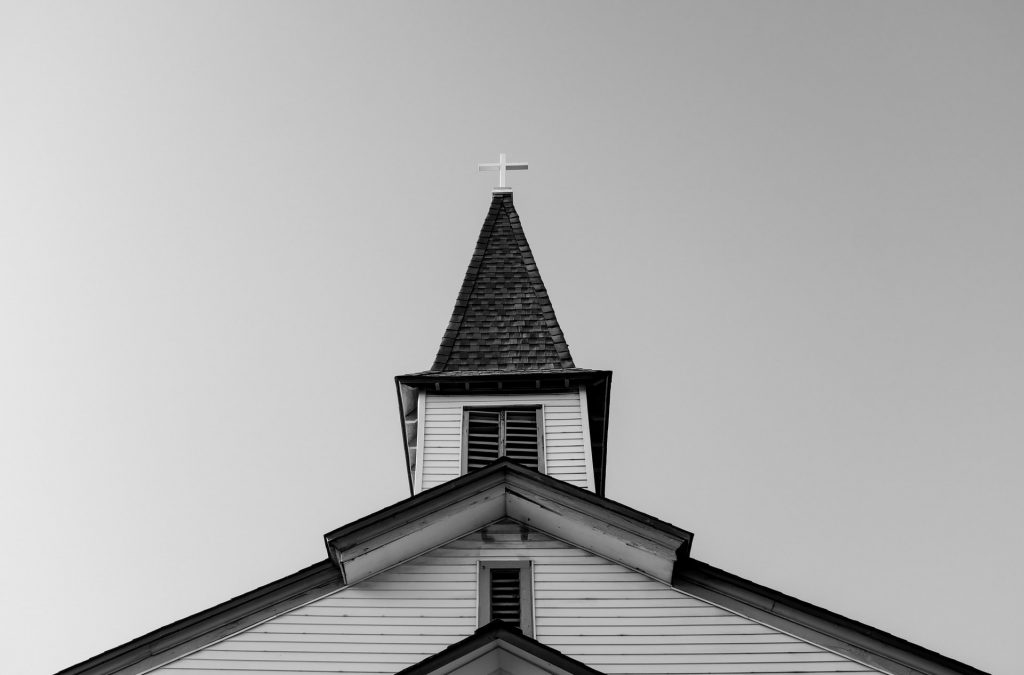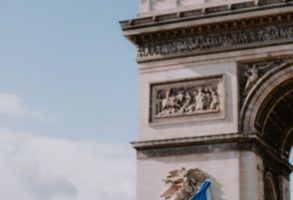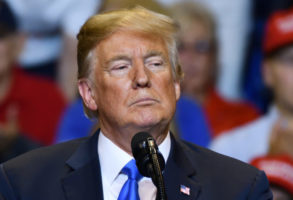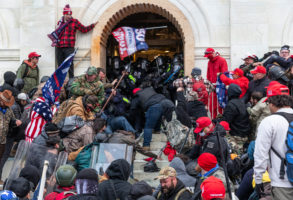
Published June 15, 2021
BYU Religious Freedom Annual Review
Below is the text of the keynote address EPPC Senior Fellow Peter Wehner delivered on June 15 at the 2021 Religious Freedom Annual Review, hosted by the International Center for Law and Religious Study at the J. Reuben Clark Law School at Brigham Young University.
Where We Are as a Society
The theme of this year’s conference, “Religion’s Role in Overcoming Divides and Strengthening American Democracy,” is so timely because our divisions are so deep and so daunting. To answer the question, the urgent question, of what role religion can play in being an agent of repair and reconciliation, it’s helpful to briefly assess the polarized state of the nation.
As everyone knows, we just experienced one of the most difficult and divisive years in our history. In 2020 we faced a once-in-a-century pandemic, racial unrest, protests in the streets, a deeply contentious election and, in early January of this year, an unprecedented act of political violence in which the citadel of democracy, the U.S. Capitol, was attacked by people seeking to overturn the results of a free and fair election.
Even common-sense public health measures to take in the midst a pandemic – measures like wearing masks and social distancing – were politicized to the point that they became symbols of America’s “culture war.”
Survey data confirms we’re seeing intense partisan division and animosity; partisans’ views of the opposing party are now more negative than at any point in memory. Knowledgeable observers are saying “the nation is confronting the greatest strain to its fundamental cohesion since the Civil War.” Majorities in both parties express not just unfavorable but very unfavorable views of the other party. Sizable shares of both Democrats and Republicans say the other party stirs feelings of not just frustration, but fear and anger. Studies tell us that “Democrats and Republicans both say that the other party’s members are hypocritical, selfish, and closed-minded, and they are unwilling to socialize across party lines.”
These trends were happening even before the nation was waylaid by COVID-19, when the objective conditions of the country were reasonably good. So there’s something deeper going on — issues having to do with our soul and spirit, a confusion of purpose, a breakdown in human relationships and intimacy. As a friend of mine put it to me, “There’s the feeling we’re at each other’s throats. There’s no sense of pride in being a part of anything, and no sense of belonging.”
Social scientists now speak about America “coming apart,” by which they mean a new upper class and a new lower class have dramatically diverged in core behaviors and values. The top and bottom of white America increasingly live in different cultures, with the powerful upper class living in enclaves surrounded by their own kind, ignorant about life in mainstream America, and the lower class suffering from erosions of family and community life that strike at the heart of the pursuit of happiness. That divergence puts the success of the American project at risk.
Role the Church is Currently Playing in Our Common Life
For the purposes of this event, I’ll focus on the Christian church in general and American evangelicalism in particular. That’s the world I know best, it’s the faith community I’ve spent much of my life a part of, and evangelicals make up fully one-quarter of the U.S. population, so what happens in that sub-culture matters to the rest of the nation.
It’s important to point out that there are millions and millions of individual Christians doing remarkable work to care for those living in the shadows of society and healing our nation’s wounds. Most people of the Christian faith I know are decent and honorable people, good citizens, and I am indebted to people of the Christian faith who have helped shape me and who have come alongside me in times of hardship and grief.
But in terms of our common life, our civic society, our political life, there’s been a breakdown. Let me go a step further: Much of what is being done by Evangelical Christians is damaging our civic fabric and undermining the public witness of Christianity.
The way many Christians are engaging in politics is troubling; if I had to boil down my concerns to a single sentence, it would be this: In too many cases, evangelicals are subordinating Christian faith to political tribalism, partisan loyalties, and political power; and in doing so they are using methods and means that are fundamentally at odds with what the American theologian Eugene Peterson called The Jesus Way.
Peterson argued that the American church is enamored with the truth of Jesus but ignores the method by which Jesus embodied that truth. Christianity is obviously not just about affirming a particular creed or set of dogmas but following the ways of Jesus — modeling one’s ways and means after His. That goes for every area of our lives, including politics and cultural engagement. According to Peterson, “We can’t suppress the Jesus way in order to sell the Jesus truth. The Jesus way and the Jesus truth must be congruent.”
A non-Christian I know told me that what is unfolding is “consistent with what sociobiology theorizes about religion: Its evolutionary purpose is to foster in-group solidarity. Principles serve rather than rule that mission.” This certainly isn’t my view of faith, but in the current circumstances — given what has played out in public over the last few decades, and especially over the last half-decade — this is not an unreasonable conclusion for him to draw. And he’s not alone. This perception is multiplying. I have heard from pastors in different parts of America who describe what’s happening as a “generational catastrophe,” in large part because young people in particular see faith as an instrument of division in our democracy instead of an instrument of healing.
What the Church Can Do
My concern, then, is that many Christians are not offering an alternative to the worst tendencies in our society but accelerating them. We need to turn that around. Followers of Jesus need to light candles instead of simply curse the darkness, and there are things that can be done writ small and writ large. Some of them are connected to politics; many are not. But together they can influence our culture and our wider society for the better.
With that in mind, here are some suggestions for how faith, and specifically the Christian faith, can be a healing force in American society and strengthen American democracy:
First, we need to articulate and show we take seriously Christian anthropology. What I mean by that is that we need to demonstrate to a watching world, in a compelling and persuasive way, that we’re made in the image of God – and that others, including those with whom we disagree, are also made in the image of God.
The Latin term, imago Dei, has its roots in Genesis, where we’re told God created man and woman in his own image. This scriptural passage implies that we humans are in the image of God in our moral, spiritual, and intellectual nature; that each of us has inestimable worth and inherent dignity. There are special qualities of human nature which allow God to be manifest in each of us.
The great distinctive of Christian involvement in public life should be to care for all, for those within our political and religious tribe and those without. There should be no one on the outside, treated as an alien or sub-human, including – and even especially — the poor and the weak, the dispossessed and the abused, the wounded traveler on the road to Jericho. Think about how profoundly better things would be if we showed the world that we won’t pass on the other side.
Second, Christians need to model listening well. We need to listen in order to learn, not just listen in order to respond. We know that to successfully communicate with people who hold views different than we do, they need to feel heard, to feel others are showing a genuine interest in them. It isn’t effective to lecture people or to marshal facts in an effort to overwhelm them — and it certainly doesn’t work to make others feel insulted, dishonored or under attack. We need to show a real interest in others, which builds trust, which in turn builds bridges.
But it goes deeper than that. There is such a thing as collective wisdom and that we’re better off if we have within our orbit people who see the world somewhat differently than we do. “As iron sharpens iron,” the book of Proverbs says, “so one person sharpens another.” But this requires us to actually engage with, and carefully listen to, people who understand things in ways dissimilar to how we do. It means we have to venture out of our philosophical and theological cul-de-sacs from time to time. It’s worth the effort.
We also need to see those with whom we disagree in mid-story – and see ourselves in mid-story as well. None of us are completed works. We might keep in mind, too, what has been said of Pope Francis: He is an evangelist, not an activist; he believes in encounter rather than confrontation.
Third, people of the Christian faith should model what it means to debate and to disagree well. All of us can do better at viewing debate less as an arena for conquest and more as an arena for learning. Let me explain what I mean. C.S. Lewis referred to his childhood friend Arthur Greeves as his “first” friend — and the philosopher and poet Owen Barfield as his “second” friend. A “first friend,” according to Lewis, is one’s alter ego, the person “who first reveals to you that you are not alone in the world by turning out… to share all your most secret delights. There is nothing to be overcome in making him your friend; he and you join like raindrops on a window.”
A “second friend” is the person who, in the words of Lewis, “disagrees with you about everything. He is not so much the alter ego as the anti-self. Of course he shares your interests; otherwise he would not become your friend at all. But he has approached them all at a different angle. He has read all the right books but has got the wrong thing out of every one. It is as if he spoke your language but mispronounced it. How can he be so nearly right and yet, invariably, just not right?”
Lewis went on to say, “When you set out to correct his heresies, you find that he forsooth to correct yours! And then you go at it, hammer and tongs, far into the night, night after night… each learning the weight of the other’s punches, and often more like mutually respectful enemies than friends. Actually (though it never seems so at the time) you modify one another’s thought; out of this perpetual dogfight a community of mind and a deep affection emerge.”
What is striking is that both Lewis and Barfield treasured their friendship precisely because they helped each other see things that they would otherwise have been blind to. They felt like they helped each other widen the aperture when it came to seeing truth.
“In argument,” Barfield said, “we always, both of us, were arguing for the truth, not for victory.” If we could move closer to the Lewis-Barfield model of dialogue and debate, we’d all be far better off. It would certainly help us think of our national politics as something other than a fight to the death.
Fourth, Christians should model humility and epistemic modesty. Over breakfast a few years ago with a friend of mine, the social psychologist Jonathan Haidt, I asked him what constructive contribution Christians could make to public life. An atheist who finds much to admire in religion, Jon answered simply: “Humility.”
That is a perfectly reasonable hope. Yet humility is hardly a hallmark of American Christianity, especially (but by no means exclusively) among those Christians prominently involved in politics. There we often see arrogance, haughtiness and pride, which is not only the “original sin” but also arguably the one most antithetical to a godly cast of mind.
My own understanding of humility is inextricably tied to a decades-long journey of faith. From it I have become convinced that Christians should be characterized by humility. This doesn’t mean followers of Jesus should be indifferent to a moral order grounded in eternal truths or unable to judge some things right and others wrong. But they ought to be alert first and foremost to their own shortcomings — to the awareness of how wayward our own hearts are, how even good acts are often tainted by selfish motives, how we all struggle with brokenness in our lives. This is not an argument for self-loathing; it’s an argument for self-awareness.
At the core of Christian doctrine is the belief that we have all fallen short, that our loves are disordered and our lives sometimes a mess, and therefore we are in need of grace. As a result, one of the defining qualities of a Christian’s witness to the world should be gentleness, an irenic spirit and empathy. The mark of genuine humility is not self-abasement as much as self-forgetting, which in turn allows us to take an intense interest in the lives of others.
In my last conversation with him before he died in 2015, Steve Hayner, who was president of Columbia Theological Seminary and an enormously influential figure in my life, put it well. “I believe in objective truth,” he told me, “but I hold lightly to our ability to perceive truth.”
What Steve meant by this, I think, is that the world is unfathomably complex. To believe we have mastered it in all respects — that our angle of vision on matters like politics, philosophy and theology is just right all the time — is ridiculous. This doesn’t mean one ought to live in a state of perpetual doubt and uncertainty. If we did, we could never speak up for justice and moral truth. It does mean, however, that we’re aware that what we know is at best incomplete. “We see through a glass darkly” is how St. Paul put it in one of his letters to the Corinthians: We know only in part.
My point is not that humility is uniquely available to Christians; it is simply that Christian teaching and tradition affirm its importance. None of us sees the truth in its totality, and all of us need the eyes and ears of others – friends, writers, those from earlier ages – to help us in the journey.
Fifth, we should model grace. Here we can learn from the author Philip Yancey, who in his marvelous book What’s So Amazing About Grace wrote this: “Grace comes free of charge to people who do not deserve it and I am one of those people. I think back to who I was — resentful, wound tight with anger, a single hardened link in a long chain of ungrace learned from family and church. Now I am trying in my own small way to pipe the tune of grace. I do so because I know, more surely than I know anything, that any pang of healing or forgiveness of goodness I have ever felt comes solely from the grace of God. I yearn for the church to become a nourishing culture of that grace.”
In his marvelous biography of Abraham Lincoln, originally published in 1917, Lord Charnwood said of him, “This most unrelenting enemy to the project of the Confederacy was the one man who had quite purged his heart and mind from hatred or even anger towards his fellow-countrymen of the South.”
Here’s a more contemporary example: Six summers ago, nine African Americans were gunned down during a Bible study at Emanuel AME Church in Charleston, South Carolina. The gunman, Dylann Roof, was motivated by racism. Less than 48 hours after the killings, the victims’ families were allowed to speak directly to Roof at his first court appearance. The family members spoke in honest, unaffected ways about their grief and heartache. Yet they bestowed forgiveness upon the man who had killed their loved ones. It was an extraordinary moment. These Christians vividly demonstrated how forgiveness can result in not just healing but also political change. Within days of their courtroom statements, then-South Carolina Governor Nikki Haley endorsed removing the Confederate flag from state grounds. Within weeks, the state legislature voted to take it down. People who would not have reversed course under the threat of boycotts and political attacks changed their minds after amazing acts of grace. Division gave way to unity because a group of wounded Christians elevated the sights and spirit of everyone around them. The greatest and most powerful Christian distinctive is not the exercise of power; it is the offer of grace.
In saying all this, I want to emphasize that in offering grace, in listening well to others and in showing proper humility, we should not be indifferent to telling the truth or calling out lies and liars; or fail to criticize what deserves criticism; or stay silent in the face of wrongdoing. Christians are not called to be passive in the face of maliciousness.
* * * *
A few years ago Mark Labberton, president of Fuller Theological Seminary, delivered a lecture, “Creating Beauty in Exile,” that helped me to see things in a different way than I have in the past. In the lecture he offers a distinct way for Christians to conceive of their calling, from people who see themselves as living in a Promised Land and “demanding it back” to living a “faithful, exilic life.” It’s a very different approach, creating different expectations and understanding of our situation, our place, our posture, our purpose.
President Labberton speaks about what it means to live as people in exile, trying to find the capacity to love in unexpected ways; to see the enemy, the foreigner, the stranger, and the alien — and to go toward them rather than away from them. He asks what a life of faithfulness looks like while living in a world of fear.
In the lecture Labberton recounts remarkable stories of people creatively, courageously and faithfully engaging with the world — the woman who lost 41 relatives in the Rwandan civil war and yet finds a way to extend grace amidst the toxicity of bitterness, resentment and hatred; the woman and her guild who made beautiful quilts for those traumatized and suffering in hospitals in eastern Congo, showing there was a place for beauty even in the context of utter dislocation and violence; the church that held traditional beliefs on human sexuality tending to the AIDS garden in Golden Gate Park with humility, love, kindness and compassion and, in the process, developing understanding, trust and meaningful relationships; an African-American student bearing witness to a racial reality he faces that would otherwise go unseen by others; Egyptians on the Fuller campus who, in the aftermath of ISIS killings of Christians in Egypt, turned a memorial service into a celebration of those who were martyred.
Mark Labberton concludes his lecture this way:
The reason this enterprise of culture care is so critical is because it awakens to us, as [the artist] Mako [Fujimura] often says, no longer talking in terms of culture war but culture care. Culture care is an expression of faithful exilic life. How do we actually show up building houses, planting gardens, loving and seeking justice, being people who seek the shalom of our enemy fortress, for it’s in that shalom that we will find our shalom.
These are calls to a different set of instincts, and I hope that… [we] acknowledge we are in a period where the tectonic plates are shifting; where the church is in one of its deepest moments of crisis — not because of some election result or not, but because of what has been exposed to be the poverty of the American church in its capacity to be able to see and love and serve and engage in ways in which we simply fail to do. And that vocation is the vocation that must be recovered and must be made real in tangible action.
I will close with this final thought: I have spent my entire life in politics, and I don’t regret having done so for a moment. I understand politics has downsides and dark sides, which is simply to say it is a human enterprise, like every other on earth. But it matters, and it should matter to people of faith. The reason is that politics is, at the end of the day, when all is said and done, about pursuing justice, even if imperfectly; and justice always matters.
So my encouragement to others, and especially to the younger generation, is don’t withdraw from politics, but do find a better way to engage with it. The political-cultural movement I have in mind will require Christians to make a compelling case for social order and moral excellence, but done with a generosity of spirit, all the while offering a healing touch.
It will require Christians to be less fearful and more hopeful, less anxious and more confident that God is sovereign and His purposes don’t ultimately rest on our efforts. Christians engaged in public life should model calm trust rather than panic and vitriol born of anxiety. We are called to be faithful, not successful.
So: Keep a critical distance. Be willing to speak truth to power. Hold on to timeless principles. Seek the welfare of the city to which you’ve been called. Don’t compromise your integrity in exchange for access to power. And use the same ethical standards on people in your party as you do for people in the other party. The words of Martin Luther King, Jr. are instructive: “The church must be reminded that it is not the master or the servant of the state, but rather the conscience of the state,” he said. “It must be the guide and the critic of the state, and never its tool.”
I’m grateful for those who, because of their faithfulness and their love of our country, have acted as the conscience of the state.
Peter Wehner, a senior fellow at the Ethics and Public Policy Center, served in the Ronald Reagan and George H.W. Bush administrations and the George W. Bush White House. He is a contributing editor at The Atlantic and a contributing opinion writer for the New York Times.








